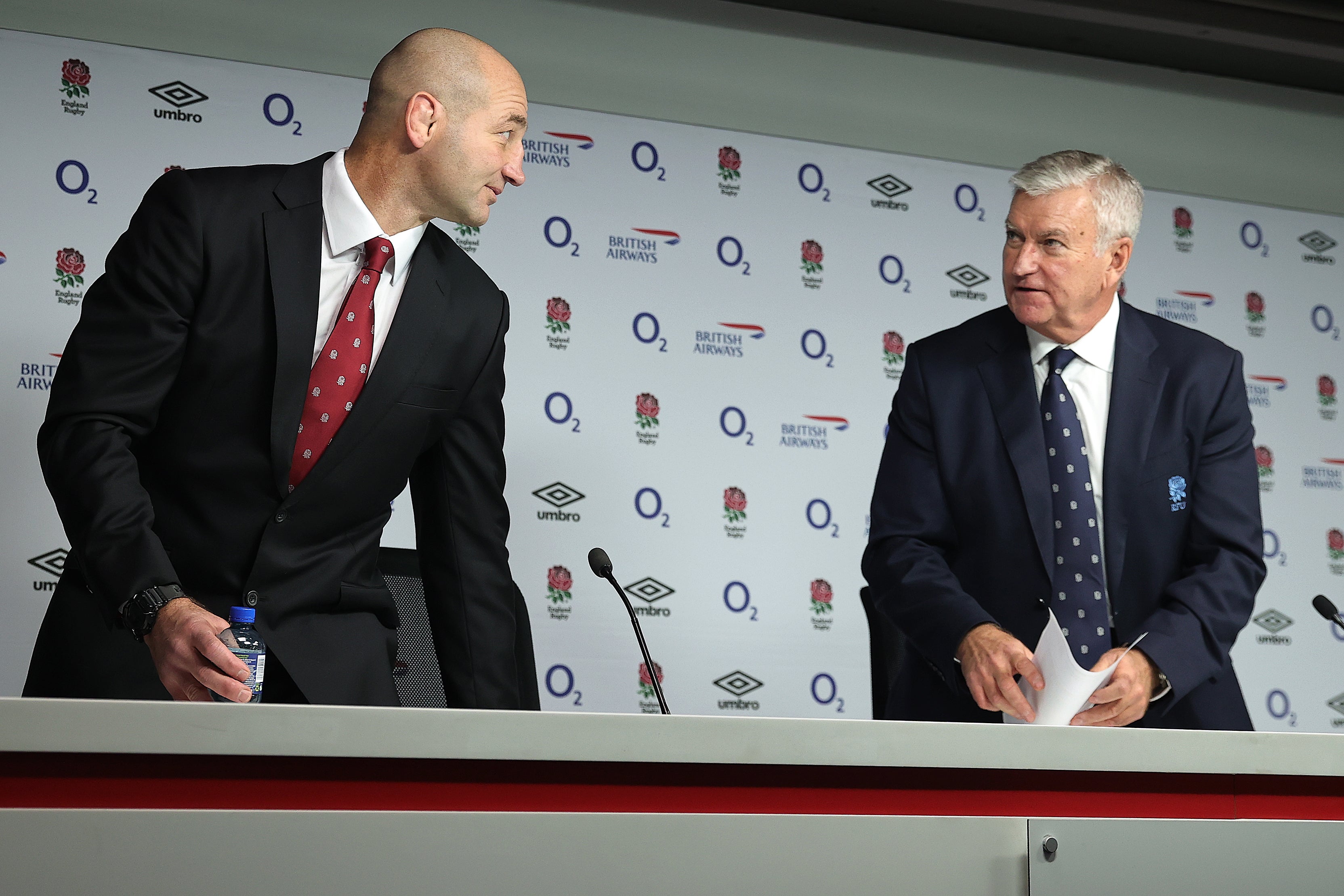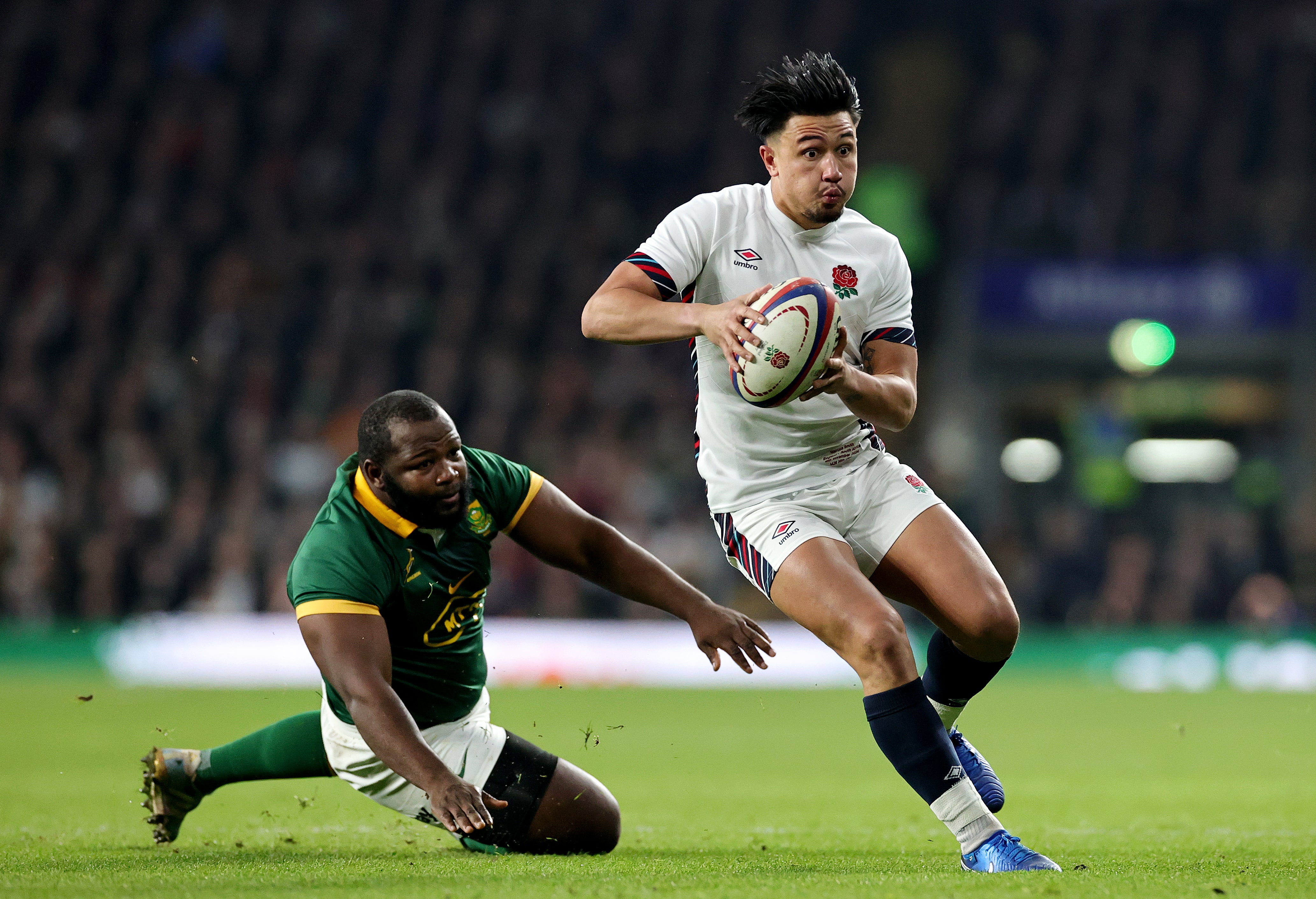
Perhaps Allianz is already dealing with a dash of buyer’s remorse. In the two months since the insurance giant took the Twickenham naming rights to the tune of more than £100m, England’s men are played three, lost three; the bedecking of their home in deep blue branding suddenly feels appropriately doleful decoration.
Thank heavens, Allianz may say, for the ever-reliable Red Roses, who did at least ensure that the retitled arena was christened with a win. During similar struggles of the recent past, the Rugby Football Union (RFU) has blended the results of its men and women in the end-of-year report to paint a prettier picture of performances – after a seventh defeat of 2024 for Steve Borthwick’s side, such alternative accounting is required again.
The ledger does not make pretty reading. England will finish the year with a failing grade and a win percentage of 42 per cent, assuming that they beat Japan in their final Autumn Nations Series fixture. It is, frankly, inadequate for a nation of such resources and relative riches; the retitled arena remains generally full for now, and the neutral has most certainly been entertained by a series of Hitchcockian thrillers, but how much longer will loyal supporters be willing to show patience before they vote with their feet?

Borthwick wore a mask of defiance on Saturday evening as he picked through the bits of another starkly familiar defeat. The head coach insisted he retained the RFU’s backing and that his side were on the right track; South Africa, he correctly assessed, are a very, very good rugby team.
Barring what would be an extraordinary defeat to Japan that may make his position untenable, change is not on the cards for a variety of reasons. Financially, the union can ill afford another new premiership having paid significantly to extract both Borthwick and his coaching team from Leicester, as shown by their inability to recruit full-time replacements for the departed Aled Walters and Felix Jones. Reputationally, chief executive Bill Sweeney would prefer his legacy be the development of a champion Red Roses side who are favourites for World Cup triumph on home soil next summer, rather than a period of stagnation, stumbles and sackings for the senior men’s side.

But history shows a number of cautionary tales for Borthwick. No England coach since Clive Woodward has made it safely through to a second World Cup. The last man to oversee a run of three successive home defeats was Andy Robinson, soon ejected before he could make a single tournament. His successor, Brian Ashton, empowered his players successfully to reach a World Cup final only to find himself booted soon after. The off-pitch disasters of 2011 meant Martin Johnson was moved on; the on-field problems four years later left Stuart Lancaster paying the price. Eddie Jones was hoisted by his own petard having sown division and disharmony in pursuit of success.
Partly the point here is that the England job is not an easy one. Sweeney himself spoke in September of two decades of underperformance since Woodward’s World Cup win. “From an outcomes point of view, sport is about results, about success,” the chief executive said. “We have underperformed massively since 2003. We have only won four Six Nations championships, one grand slam – 2011, 2016, 2017 and 2020. You’d expect more from us and we definitely want to deliver more.”
The club/country clashes may have eased slightly under the new terms of the recently-signed Professional Game Partnership (PGP) but there is still a sense of a system not working to set up Borthwick for success. The coach lamented again after the Springboks defeat of his players not being Test-ready after coming in from their clubs for the start of November. He spoke of the side’s youth but in the crunch, it was senior figures and British & Irish Lions making costly mistakes, too.

“We desperately want to win,” Borthwick admitted. “I’m probably one of the most impatient people you would meet. I also understand that there’s a journey that we’re on, a transition we’re on.
“I want to fast-track it as quickly as possible. Ultimately, we are going through some painful experiences but I strongly believe this is a team that will become stronger through this adversity. We will be stronger. The team will be tighter and in the future, we’ll look back at this period saying that it was an important step across our development.”
There has been some revisionist history around Borthwick’s qualities. While the circumstances of his appointment were rushed after Jones’s defenestration, there is no doubting he was a strong candidate for the role, working as an assistant in two Test teams, including a very successful England side, before leading Leicester to a Premiership title. But could a more senior, strong voice in the coaching staff be beneficial? No doubt, the departures of Jones and Walters are being felt.
Amid a worrying picture, there are reasons for optimism. Marcus Smith has come of age this autumn and looks more and more like a top-class Test 10, while for all South Africa’s might, England held up well at the set piece on Saturday. Will Stuart has quietly impressed at tighthead; the unavailability of Ollie Chessum has not helped but England clearly have some promising back five pieces. They have been in every Test this year at the 60-minute mark, which was not true in 2023 nor in the latter days of Jones.

There is a school of thought among some Test coaches that it is better to finish a game with your best 15 on the pitch than start it. One only has to look at how the Springboks have weaponised their bench so effectively to see this, utilising Handre Pollard and their “Bomb Squad” to swing tight games. Psychologically, the knowledge of the cavalry to come is a clear advantage; England clearly do not have the World Cup winners’ depth but Borthwick will want more impact from a bench that generally contains too many nonentities.
As such, he was an interested observer at England’s “A” game against Australia at the Twickenham Stoop on Sunday, where a number of youngsters pushed their case. England’s world championship-winning Under 20s have been described as a golden generation – versatile prop Asher Opoku-Fordjour is likely to feature against Japan and giant tighthead Afolabi Fasogbon may not be far behind.
Those young bucks will come into a group where belief still seems to remain. “I’ve rarely seen a coach who has as much devotion as Steve,” Maro Itoje stressed in the immediacy of the South Africa defeat. “We need to do better by him. We need to finish off these games.

“I think the coaches are setting up the week nicely and preparing us for the challenge ahead, so as players we need to be better and more clinical. When we have these opportunities to win games, we have to make sure that we are precise and we execute.
“It’s on us as players, us as senior players, us as leaders to take responsibility and turn this thing around. I feel there are certain areas where we have improved. But ultimately, we haven’t got the results. And we are in a results business.”







